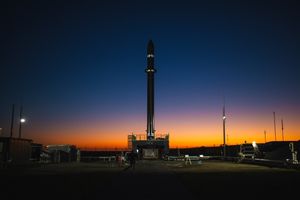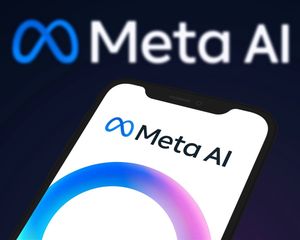- Obe-cel: 35% of relapsed/refractory adult B-ALL patients in the ALLCAR19 trial remain in complete remission at a median follow up of three years without the need for additional anti-leukemia therapy
- Obe-cel: continues to show high level of sustained clinical activity in B-NHL patients
- AUTO1/22: no antigen negative relapse seen in responding patients
- AUTO4: first sustained metabolic CRs at 9 and 12 months of follow-up in T cell Lymphoma patients
LONDON, Dec. 12, 2022 (GLOBE NEWSWIRE) -- Autolus Therapeutics plc (Nasdaq: AUTL), a clinical-stage biopharmaceutical company developing next-generation programmed T cell therapies, today announces the online publication of three posters with updates from three Phase 1 clinical trials to be presented at the American Society of Hematology (ASH) Annual Meeting, December 10-13, 2022.
“With three years of median follow-up in our Phase 1 ALLCAR19 study we see 35% of adult relapsed/refractory B-ALL patients treated with obe-cel in sustained complete remissions between 24 and 47 months without any need for additional anti-leukemia therapy. Remarkably, these patients in long term remissions also have long-term persisting CAR T cells, a unique feature of obe-cel,” said Dr. Christian Itin, Chief Executive Officer of Autolus. “With the initial data from the pivotal Phase 2 FELIX trial tracking the outcome of our previous ALLCAR19 trial, we are excited about the potential prospects of obe-cel in adult ALL patients and look forward to presenting the full data of the FELIX study in mid-2023. The potentially best-in-class profile of obe-cel is supported by the data we have observed in NHL, with continued high levels of clinical activity paired with an encouraging tolerability profile across DLBCL, MCL, FL and CLL.”
“It’s great to be presenting clinical updates for AUTO1/22 in pediatric B-ALL and AUTO4 in peripheral T Cell Lymphoma. AUTO1/22 shows encouraging response rates in patients ineligible for commercial CAR T therapy, with 83% of patients achieving MRD negative complete responses. Importantly, we have not observed antigen negative relapse,” said Dr. Martin Pule, Chief Scientific Officer at Autolus. “In the AUTO4 study, some patients have experienced durable metabolic CRs, including one patient up to the one-year mark. This is a notable finding given the poor prognosis of relapsed/refractory T cell lymphomas.”
Conference Call
Management will host a conference call and webcast at 10:30 am ET/3:30 pm GMT to summarize the ASH data. The webcast can be accessed at this link.
A simultaneous audio webcast and replay will be accessible on the events section of Autolus website.
Posters to be presented:
- Title: Safety, Efficiency and Long-Term Follow-up of AUTO1, a Fast-Off Rate CD19 CAR in Relapsed/Refractory B-Cell Acute Lymphoblastic Leukaemia (B-ALL) and Other B-Cell Malignancies
LINK to poster
Session Title: 704. Cellular Immunotherapies: Early Phase and Investigational Therapies: Poster II
Session date and time: Sunday, December 11, 2022, 6:00 PM – 8:00 PM
Session room: Ernest N. Morial Convention Center, Hall D
Publication Number: 3318
Presenting Author: Dr. Claire Roddie, MD, PhD, FRCPath, Consultant Haematologist and Honorary Senior Lecturer, Cancer Institute, University College London (UCL)
Summary: In the B-ALL cohort, 7 out of 20 (35%) patients were observed to be in ongoing Complete Remission (CR) at median follow up of 36 months (IQR 24-47) post-AUTO1 without the need for additional anti-leukemia therapy. Ongoing long-term remissions appear to be associated with CAR-T persistence, which was also observed in these 7 patients at their last follow-up. One patient with a subsequent stem cell transplant (SCT) also achieved long term remission but lost CAR T persistence after SCT. In the B-cell non-Hodgkin lymphoma/chronic lymphocytic leukemia (NHL/CLL) cohorts, AUTO1 continues to display a favorable tolerability profile with no immune effector cell-associated neurotoxicity syndrome (ICANS) or Grade ≥ 3 cytokine release syndrome (CRS) across different indications. Of 25 patients with NHL/CLL evaluable for efficacy, the best overall response rate (ORR) was 23/25 (92%). AUTO1 was observed to be well-tolerated and active in diffuse large B-cell lymphoma (DLBCL), with 7 of 8 patients in ongoing CR at last follow-up. In CLL, 4 of 5 treated patients achieved undetectable minimal residual disease (uMRD) in the bone marrow (BM), ongoing at last follow-up. While no relapses were seen in DLBCL patients, late CD19+ relapses were seen in follicular lymphoma (FL), and ongoing CAR-T persistence appears to be important. - Title: Dual Antigen Targeting with Co-Transduced CD19/22 CAR T Cells May Prevent Antigen-Negative Relapse after CAR T Cell Therapy for Relapsed/Refractory ALL (AUTO1/22)
LINK to poster
Session Title: 704. Cellular Immunotherapies: Early Phase and Investigational Therapies: Poster III
Session date and time: Monday, December 12, 2022, 6:00 PM – 8:00 PM
Session room: Ernest N. Morial Convention Center, Hall D
Publication Number: 4650
Presenting Author: Dr. Sara Ghorashian, MD, PhD, Hon clinical senior lecturer, UCL Great Ormond Street Institute of Child Health
Summary: AUTO1/22 demonstrated a strong level of activity with 83% (10/12) MRD negative complete remissions and a favorable tolerability profile in a very challenging patient population (4 patients failed previous Kymriah treatment with three having CD19-negative disease, 3 had non-central nervous system (CNS) extra-medullary disease, which is associated with poor outcomes with CAR T therapy). AUTO1/22 showed excellent expansion, with a median 7.5 months duration of persistence of CD22 CAR. No antigen negative relapse was seen in responding patients. At a median follow up of 8.7 months, five of 10 responding patients were in MRD negative complete response (4-12 months) with two after further therapy for early loss of CAR T persistence. - Title: First in Human Study of AUTO4, a TRBC1-Targeting CAR T-Cell Therapy in Relapsed/Refractory TRBC1-Positive Peripheral T-Cell Lymphoma
LINK to poster
Session Title: 704. Cellular Immunotherapies: Early Phase and Investigational Therapies: Poster III
Session date and time: Monday, December 12, 2022, 6:00 PM – 8:00 PM
Session room: Ernest N. Morial Convention Center, Hall D
Publication Number: 4634
Presenting Author: Dr Kate Cwynarski, Consultant Haematologist University College London Hospitals (UCLH)
Summary: Having shown proof of concept at EHA in June 2022, AUTO4 treatment for peripheral T-cell Lymphoma continues to be observed to be well tolerated with no dose-limiting toxicities. Ongoing responses at 9- and 12-months post-dosing at the highest dose tested (450x106) are encouraging, and suggests a potential clinical benefit for patients. No CAR T cell expansion was observed in peripheral blood, but CAR T cells were detected in an on-treatment lymph node biopsy. Optimization of the AUTO4 manufacturing process has been performed, resulting in a product candidate with a more naive and central memory phenotype. The study is ongoing, with additional patients due to be treated to define the recommended Phase 2 dose.
About Autolus Therapeutics plc
Autolus is a clinical-stage biopharmaceutical company developing next-generation, programmed T cell therapies for the treatment of cancer. Using a broad suite of proprietary and modular T cell programming technologies, the Company is engineering precisely targeted, controlled and highly active T cell therapies that are designed to better recognize cancer cells, break down their defense mechanisms and eliminate these cells. Autolus has a pipeline of product candidates in development for the treatment of hematological malignancies and solid tumors. For more information, please visit www.autolus.com.
About obe-cel (AUTO1)
Obe-cel is a CD19 CAR T cell investigational therapy designed to overcome the limitations in clinical activity and safety compared to current CD19 CAR T cell therapies. Designed to have a fast target binding off-rate to minimize excessive activation of the programmed T cells, obe-cel may reduce toxicity and be less prone to T cell exhaustion, which could enhance persistence and improve the ability of the programmed T cells to engage in serial killing of target cancer cells. In collaboration with Autolus’ academic partner, UCL, obe-cel is currently being evaluated in a Phase 1 clinical trials for B-NHL. Autolus has progressed obe-cel to the FELIX trial, a potential pivotal trial for adult ALL.
About AUTO1/22
AUTO1/22 is a novel dual targeting CAR T cell-based therapy candidate based on obe-cel. It is designed to combine the enhanced safety, robust expansion & persistence seen with the fast off rate CD19 CAR from obe-cel with a high sensitivity CD22 CAR to reduce antigen negative relapses. This product candidate is currently in a Phase 1 clinical trial called CARPALL for patients with r/r pediatric ALL. [NCT02443831]
About AUTO4
AUTO4 is a programmed T cell product candidate in clinical development for T cell lymphoma, a setting where there are currently no approved programmed T cell therapies. AUTO4 is specifically designed to target TRBC1 derived cancers, which account for approximately 40% of T cell lymphomas, and is a complement to the AUTO5 T cell product candidate, which is in pre-clinical development. AUTO4 has been tested in a Phase 1 clinical trial, LibRA1 for patients with peripheral T cell Lymphoma.
Forward-Looking Statements
This press release contains forward-looking statements within the meaning of the "safe harbor" provisions of the Private Securities Litigation Reform Act of 1995. Forward-looking statements are statements that are not historical facts, and in some cases can be identified by terms such as "may," "will," "could," "expects," "plans," "anticipates," and "believes." These statements include, but are not limited to, statements regarding Autolus’ development of the obe-cel program; the future clinical development, efficacy, safety and therapeutic potential of its product candidates, including progress, expectations as to the reporting of data, conduct and timing and potential future clinical activity and milestones; expectations regarding the initiation, design and reporting of data from clinical trials; expectations regarding regulatory approval process for any product candidates; the collaboration between Autolus and Blackstone; the discovery, development and potential commercialization of potential product candidates including obe-cel using Autolus’ technology and under the collaboration agreement; the therapeutic potential for Autolus in next generation product developments of obe-cel in B-cell malignancies; the potential and timing to receive milestone payments and pay royalties under the strategic collaboration; and the Company’s anticipated cash runway. Any forward-looking statements are based on management's current views and assumptions and involve risks and uncertainties that could cause actual results, performance, or events to differ materially from those expressed or implied in such statements. These risks and uncertainties include, but are not limited to, the risks that Autolus’ preclinical or clinical programs do not advance or result in approved products on a timely or cost effective basis or at all; the results of early clinical trials are not always being predictive of future results; the cost, timing and results of clinical trials; that many product candidates do not become approved drugs on a timely or cost effective basis or at all; the ability to enroll patients in clinical trials; possible safety and efficacy concerns; and the impact of the ongoing COVID-19 pandemic on Autolus’ business. For a discussion of other risks and uncertainties, and other important factors, any of which could cause Autolus’ actual results to differ from those contained in the forward-looking statements, see the section titled "Risk Factors" in Autolus' Annual Report on Form 20-F filed with the Securities and Exchange Commission on March 10, 2022, as well as discussions of potential risks, uncertainties, and other important factors in Autolus' subsequent filings with the Securities and Exchange Commission. All information in this press release is as of the date of the release, and Autolus undertakes no obligation to publicly update any forward-looking statement, whether as a result of new information, future events, or otherwise, except as required by law.
Contact:
Olivia Manser
+44 (0) 7780 471568
o.manser@autolus.com
Julia Wilson
+44 (0) 7818 430877
j.wilson@autolus.com
Susan A. Noonan
S.A. Noonan Communications
+1-917-513-5303
susan@sanoonan.com





